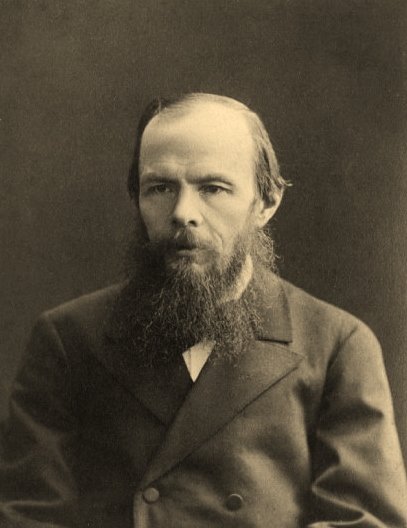
One passage in particular which stuck out to me when reading Demons by Fyodor Dostoevsky pertains to the characterization of one of the main central figures of the novel, Pyotr Stepanovich Verkhovensky. In the chapter titled “Instead of an Introduction, we are first introduced to a lot of the character’s in Stepan’s circle, which includes characters like Liputin, Yuila, and Shatov. In section 9 of this chapter Shatov and Stepan have a particular argument over the importance of national identity. Stepan, in response to an argument made by Shatov dealing with the role of the peasants in a revolution, says “believe me this (he repeated the gesture across his throat) will be of no use whatsoever either to the landowners or to the rest of us in general. Even without heads, we will no longer be able to arrange anything, though it’s our heads that hinder our understanding most of all” (Dostoevsky 35). Stepan then goes on to detail some extraordinary thoughts on the character of the Russian people. He states that those who aren’t part of a collective or national identity will fall victim to atheistic and nihilistic views. These sentiments, along with a lot of the other ideas in this novel closely follow the emerging revolutionary ideas which were becoming very popular in Russia at the time of the novel (1869). The remark which brought Stepan to voice his opinion on the peasants class of Russia came from an earlier event in which he was reciting a verse from a poem. The verse goes “Peasants come, they’re bring axes, something bad will happen” (Dostoevsky 34). This again mirrors revolutionary thinking of the time and also leads Stepan into a somewhat disturbed and agitated mood as the argument goes on. Stepan states “These men of yours never loved the people, never suffered for them or sacrificed anything for them, no matter what they themselves imagined for their own good pleasure!” (Dostoevsky 38). All of these sentiments in which Stepan has dictated to his group of friends resemble the arguments of the leaders of the October Revolution, and while the revolution has not yet happened by the time of this story, there are people in Stepan’s circle who closely harbor those same sentiments. Later in the novel, these sentiments will be used by Dostoevsky to highlight the dangers of revolutionary ideals similar and wholly identical to Stepan’s. However Dostoevsky goes to great lengths to justify and define Stepan’s character, so by the time the novel ends, we are able to understand why Stepan has made his choses. The name of the novel, Demons, is a reference to the idea that normal people can become enamored by ideals in which they become consumed with. In the introduction to the novel written by Richard Pevear, he writes “it is not you who ate the idea, but the idea ate you” (Pevear 18). This hints at the theme of possession by ideals which we are starting to see in Stepan’s character. Oddly enough, Solzhenitsyn in the post-revolutionary era of Russia also wrote a lot about a sort of possession with political revolutionary ideals. Solzhenitsyn mirror’s Dostoevsky’s views however, in that they both believe that a person believes in those ideals for a reason. “To do evil a human most first of all believe that he is doing good” (Solzhenitsyn 77). Stepan, who ultimately does commit some evil deeds throughout the course of the novel, believes in his righteousness, just ass the October revolutionaries believed in the justified murder and slaughter of hundreds in the name of political freedom.
Leave a Reply